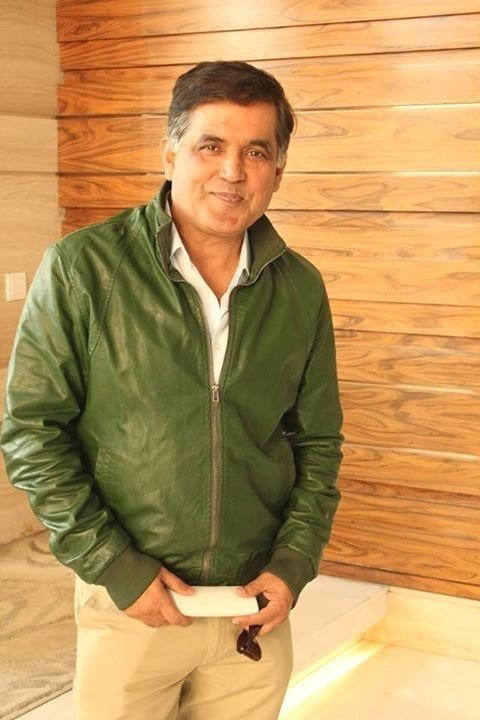Breakthrough or whitewash? Long-overdue punishment for a terror monster as Pakistan sentences Hafiz Saeed for 2008 Mumbai attack
I have personal reasons to be elated with the 11-year-sentencing of the UN-designated terrorist Hafiz Saeed in Lahore, Pakistan on Wednesday – though like most self-gratifying moments, I could be guilty of undue haste.
I feel a sense of lightness at the sentencing of a monster terrorist who masterminded the 26/11 attack in Mumbai in 2008, in which 166 innocent people were gunned down, including a very dear fellow journalist with whom I shared the newsroom at the English daily Times of India in the 1990s.
Though the sentence is too little, too late – and could still mean nothing in the days to come – Hafiz Saeed is the face of evil to me. Saeed’s men pumped bullets into my colleague and friend, Sabina Saikia, pulling her from below the bed where the terrified girl had hidden at the staccato sounds of machine guns outside her room in the iconic Taj Hotel of India’s commercial capital.
A nightmare that continues
The fateful evening was November 26, 2008, and I had long since left the Times of India. Now, I was busy marshalling the news desk of a national TV channel as the dreaded attack unfolded. I had no idea Sabina was in Mumbai to attend a wedding for a day and that she had checked in to the very hotel which had been watched for months by terrorists from across the border in Pakistan.
It would be four days before we knew who and how many people were murdered, as the killers holed themselves up in the ocean-front hotel before India’s security forces managed to neutralize them following dozens of hours of gun battles, watched 24/7 on television by a stunned nation.
Sabina’s was no ordinary casualty. She was the Czarina of Food, whose reviews in India’s best-selling English daily made or marred a restaurant’s reputation. She had dabbled in various news ‘beats,’ including crime and investigation, but found her seat at the high table of journalism as a food critic. There she had stayed put until those bullets took her life.
Anniversary after anniversary passed. I kept a tab on mastermind Hafiz Saeed, who was the co-founder of the Lashkar-e-Taiba (LeT) terrorist group which had received its initial funding from none other than Osama bin Laden. This is the same Islamist group which was accused of an attack on India’s Parliament in 2001 – as well as the Pulwama suicide attack which killed more than 40 Indian soldiers in 2019, merely four months after Saeed was arrested for terror-financing.
All these years, Saeed was evil personified for many Indians. India knocked on the doors of global powers to have Saeed and his terror group sanctioned and watched in horror as the bearded, portly terrorist was arrested and released on more than one occasion by the Police-Judiciary interplay in Pakistan. India’s attempts to secure his extradition remained unanswered. The United States, since then, declared LeT responsible for the 26/11 Mumbai attack and announced a bounty of $10 million on Saeed’s head.
Breakthrough or strategic move?
At face value, Pakistan has cracked the whip on terrorism – the first condition for India to resume dialogue with its neighbor and arch rival. Logically, this should lower the tensions between the two nations, particularly strained after India revoked the autonomous status of the Jammu & Kashmir state last August. Saeed, in particular, was India’s nemesis in Kashmir Valley and has long-vowed to prise it out of India’s grasp.
But India is not too optimistic yet. It knows Pakistan has a critical meeting with the Financial Action Task Force (FATF) in Paris this weekend, which could ‘blacklist’ it for insufficient action to keep a check on funding to terror groups like Lashkar-e-Taiba. In that light, the country’s sentencing of the 70-year-old Saeed could just be strategic.
Also on rt.com ‘They died protecting their motherland’: India pays tribute to heroes and victims of 2008 Mumbai attacksIf it is blacklisted, Pakistan could lose up to $10 billion and be economically devastated. It would be an outcast in the international financial system. Its banking system would be crippled, remittances or access to international lending would be denied and foreign investors would keep the nation at arm’s length.
The last on Saeed has not been heard yet. But his sentencing is a balm, nevertheless, for the wounded soul in me.
Like this story? Share it with a friend!
The statements, views and opinions expressed in this column are solely those of the author and do not necessarily represent those of RT.















